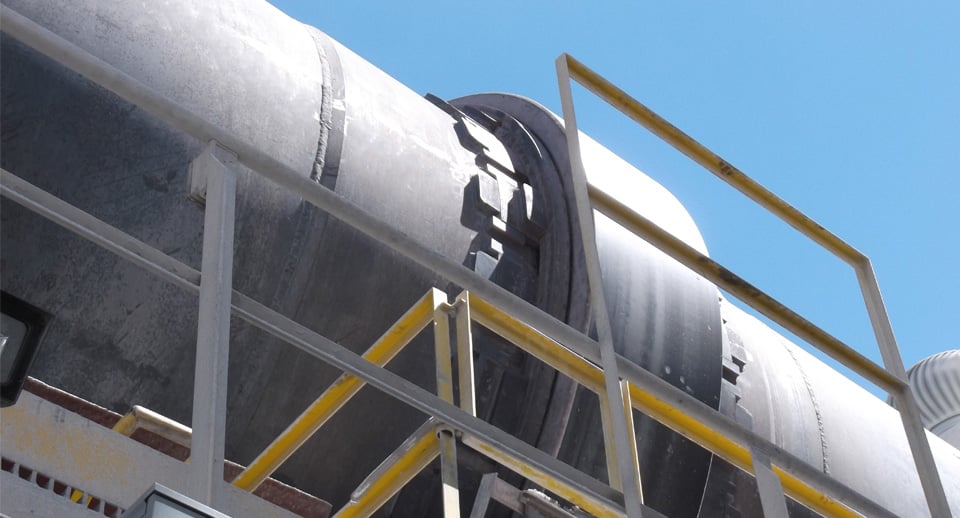WHAT IS A MONTHLY DYNAMIC ROTARY DRUM INSPECTION?
FEECO offers monthly (or other incremental) dynamic rotary drum inspections to facilities with four or more rotary drums as a way to simplify drum maintenance and catch potential problems at their onset, all while minimizing downtime. These inspections are available for any type of rotary drum, including:
- Rotary dryers and coolers
- Granulation and agglomeration drums
- Rotary kilns and calciners
- Coating drums
- Rotary scrubbers
HOW A MONTHLY DYNAMIC INSPECTION WORKS
Each month, a FEECO Customer Service Engineer conducts a static inspection on one (shut down, locked-out, tagged-out) rotary drum. This inspection is a thorough evaluation of the mechanical condition of the rotary drum both inside and out, including the following components:
- Drum shell
- Drive components
- Tires and trunnion rollers/wheels
- Thrust rollers
- Breechings
- Internals
- Seals
- Knocking systems
- Burner/Combustion chamber
Various measurements are taken as part of the assessment, including:
- Tire face width
- Tire thickness
- Cold gap
- Keeper gap
- Tire profile
- Tire hardness
- Trunnion wheel profile
- Trunnion wheel face width
- Trunnion wheel hardness
- Drum shell thickness profile (as needed)
During this time, any necessary maintenance can be scheduled for a planned outage.
During the same visit, the Customer Service Engineer also conducts a dynamic inspection on all remaining drums at the facility while they remain in operation. This consists of a high-level visual walk-through of the drum, with the engineer looking for the start of potential issues such as:
- Misalignment
- Tire and/or trunnion wear
- Visual or auditory abnormalities
- High thrust loads
A number of observations may also be taken during the dynamic inspection:
- Trunnion bearing temperatures
- Drive bearing temperatures
- Trunnion bearing vibrations
- Drive bearing vibrations
- Thrust roller contact
- Tire creep
- Shell temperature profile
The following month or quarter, depending on the number of drums at the site, a different drum is shut down for a full static inspection, while the others remain in operation and are dynamically inspected.
This systematic approach to rotary drum maintenance helps plant managers to identify maintenance issues early, before they have a chance to escalate. It also gives them the opportunity to prioritize and plan necessary maintenance procedures for future shutdowns.
BENEFITS OF MONTHLY DYNAMIC INSPECTIONS
The early identification of potential issues and prevention of mechanical failures is hard to quantify, but often results in a reduction of unplanned downtime, decreased maintenance costs, and an overall lower total cost of ownership, making monthly dynamic inspections more than worth the investment.
This approach also streamlines the planning and execution of routine maintenance procedures.

